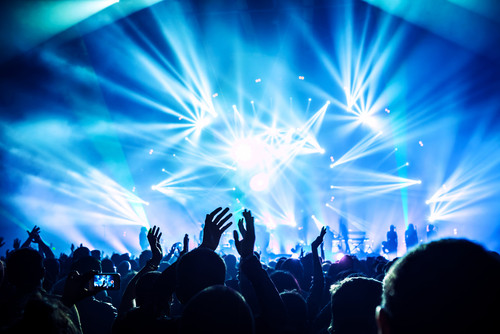Popular Reads
Top Results
Can't find what you're looking for?
View all search resultsPopular Reads
Top Results
Can't find what you're looking for?
View all search resultsHow does coronavirus spread during a concert? A new study will soon find out
Change text size
Gift Premium Articles
to Anyone
W
hile mass cultural gatherings are still on hold in reaction to the coronavirus pandemic, researchers from the Martin Luther University of Halle-Wittenberg are recruiting volunteers to study how the virus spreads during a concert.
Scientists of the Restart-19 project are planning to equip 4,000 concertgoers with tracking gadgets and bottles of fluorescent disinfectant to monitor how the new coronavirus would spread during a large indoor concert.
The series of experiments will take place on August 22 at the Quarterback Immobilien Arena in Leipzig, where German singer-songwriter Tim Bendzko will perform in front of a crowd of volunteers.
Participants will be asked to act out three different scenarios, the first of which will replicate the experience of going to a concert prior to the pandemic.
The second simulation will be more aligned with new health and safety guidelines, and will find the audience entering the venue through two main entrances to minimize physical encounters.
In the third scenario, a limited number of volunteers will be allowed in the Quarterback Immobilien Arena to maintain a safety distance of 1.5 meters during the event.
Read also: Only drive-in concerts allowed during transition phase
Participants, aged between 18 and 50, will be required to wear a small contact-tracing device that will transmit a signal every five seconds to record proximity with other individuals, as well as the duration and frequency of contact with others during the concert.
Additionally, volunteers will be asked to wash their hands with fluorescent hand-sanitizer at the entry of the venue. Researchers will then scour the stadium with UV lights to identify surfaces where transmission of COVID-19 is most likely to occur.
According to The Guardian, vapors from a fog machine will also help visualize the possible spread of the virus via aerosols.
"We are trying to find out if there could be a middle way between the old and the new normal that would allow organizers to fit enough people into a concert venue to not make a loss," said Stefan Moritz, the head of clinical infectious diseases at the University hospital in Halle and the experiment's coordinator, told the publication.
To this date, 979 volunteers have signed up for the Restart-19 project, all of whom will have to present a negative test to COVID-19 prior to the concert.











